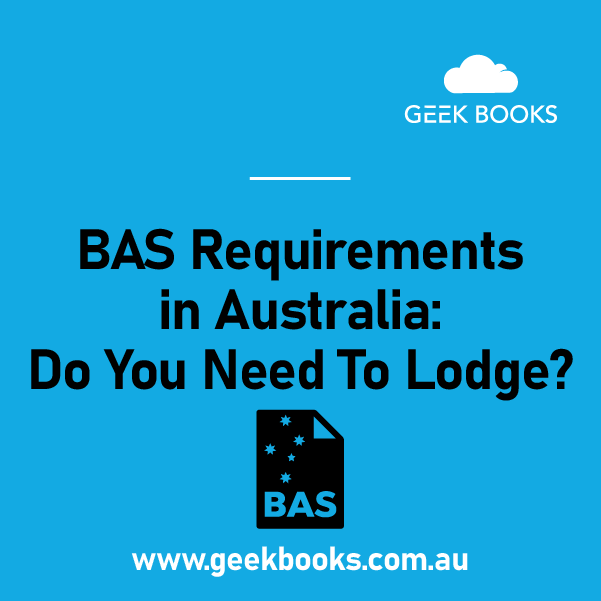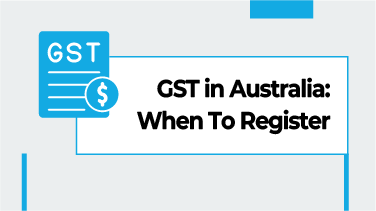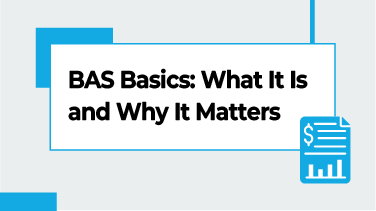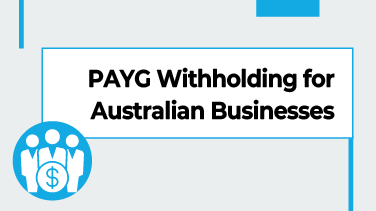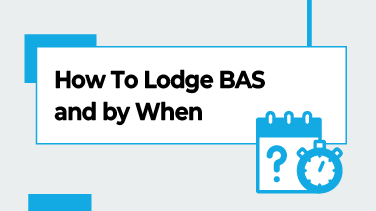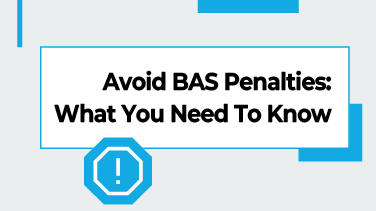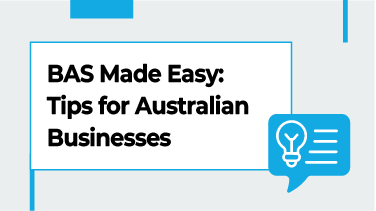Are you a new Aussie business owner? There’s a lot involved in getting your business off the ground.
One important aspect is complying with the ATO’s tax regulations. You can’t afford to lose any of your hard-earned profits to the tax man!
You’re likely paying income tax, and if you have employees, PAYG withholding, superannuation, and payroll tax.
However, there are more taxes that cannot be overlooked: those reported on by a Business Activity Statement (BAS).
What are these taxes, and who needs to lodge a BAS and pay them?
We have the answers!
Key Takeaway BoxWho needs to lodge a BAS? Businesses registered for Goods and Services Tax (those with an annual turnover of $75,000 or more) in Australia need to lodge a Business Activity Statement (BAS). This statement includes reporting and paying GST, PAYG withholding, and other tax obligations. |
GST in Australia: When To Register
Businesses registered for Goods and Services Tax (GST) must regularly lodge a BAS.
GST is a 10% tax on most goods, services, and other items sold or consumed in Australia.
Businesses collect GST on sales and can claim credits for the GST paid on business-related purchases.
Then, they report and pay the net GST amount to the Australian Taxation Office (ATO) through their BAS.
When does a business have to register for GST?
When its annual GST turnover is $75,000 or more ($150,000 or more for non-profit organisations).
Some businesses may even voluntarily register for GST if their turnover is under that threshold to claim GST credits on purchases and enhance their business’ credibility.
To calculate your GST turnover, add up your total income (not profit) from all business activities, excluding
- GST collected on sales
- Sales unconnected with your business (e.g., hobby sales)
- Input-taxed sales (e.g., financial services, residential rent)
- Sales unconnected with Australia
- Certain private sales
It’s important to note that you must register for GST with the ATO within 21 days of your business’ GST turnover exceeding the $75,000 threshold.
BAS Basics: What It Is and Why It Matters
A Business Activity Statement (BAS) is a form submitted to the ATO to report your business activities and pay the related taxes.
These taxes include
- GST
- Pay As You Go (PAYG) withholding: The tax withheld from employees’ wages
- PAYG instalments: For businesses that make regular income tax instalments
- Fringe Benefits Tax instalments: For businesses providing employees with fringe benefits
- Luxury Car Tax, Fuel Tax Credits, and Wine Equalisation Tax (if applicable)
Beyond compliance, lodging BAS helps you accurately track your business income and expenses, claim GST credits on purchases, and manage your cash flow.
It also provides a regular overview of your tax obligations for financial planning and decision-making.
PAYG Withholding for Australian Businesses
Pay As You Go (PAYG) refers to the system where you withhold tax from your employees’ wages and send it to the ATO throughout the financial year to help your employees progressively meet their income tax obligations.
You’ll report the total PAYG withholding tax deducted on the BAS form under labels W1, W2, W3, W4, W5, and 4.
You can find an example of how to complete these labels on the ATO’s website here.
How To Lodge BAS and by When
You can lodge BAS through
- The ATO’s “Online services for business” platform
- Standard Business Reporting (SBR) software
- A registered tax agent or BAS agent
- The mail, sending the ATO’s paper form to “Australian Taxation Office, Locked Bag 1936 Albury, NSW 1936”
When?
- Quarterly: For businesses with a turnover of less than $20 million. Lodgement deadlines for each quarter are October 28, February 28, April 28, and July 28.
- Monthly: For businesses with a turnover over $20 million or who choose to report monthly. Deadlines are on the 21st of each month following the end of the taxable period.
- Annually: With approval from the ATO, this option is for businesses with voluntary GST registration and a turnover below $75,000 ($150,000 for non-profits). The deadline is October 31 (in line with the income tax return).
Avoid BAS Penalties: What You Need To Know
If your BAS payment is late, penalties can apply.
The Failure To Lodge (FLT) penalty is calculated as one penalty unit for each 28 days (or part thereof) that the BAS is overdue, up to a maximum of five units. As of June 30, 2024, one penalty unit is $313.
The size of your business and the lateness of the payment will determine the amount you must pay.
For example, for a small business with a GST turnover under $1 million, the penalty is $313 for every 28 days overdue.
The penalty is doubled for turnovers between $1 million and $20 million or medium PAYG withholders, and multiplied by five for turnovers over $20 million or large PAYG withholders.
Additionally, you will have to pay interest (currently 11.34%) on overdue tax debt, which compounds daily.
Be sure to double-check your BAS before lodging, as administrative penalties apply for incorrect information.
What other consequences result from late BAS lodgement?
- Increased scrutiny from the ATO.
- A negatively impacted cash flow from accrued penalties and interest charges.
- An affected credit rating and difficulty securing financing.
BAS Made Easy: Tips for Australian Businesses
You don’t want to be scrambling to get all the necessary paperwork and numbers in order when it’s time to lodge your BAS; that’s how mistakes are made!
To streamline your lodgement process and reduce stress, follow these tips.
- Keep detailed, organised records of all transactions, including invoices, receipts, and bank statements for your BAS and to claim all eligible GST credits.
- Use accounting software like Xero or MYOB to manage your bookkeeping tasks and automate BAS calculations.
- Regularly reconcile your accounts with your bank statements to check they match and to correct any discrepancies.
- Understand GST requirements, including which sales and purchases attract GST and how to claim GST credits.
- Set aside GST collected on sales in a separate bank account so you have the funds available when it’s time to pay the ATO.
- Mark BAS lodgement due dates on your calendar and set reminders.
- Seek professional help from a bookkeeper, BAS agent, or tax agent. They can provide expert advice, help with lodgement, and ensure compliance with ATO requirements.
Simplify Your BAS With GeekBooks: Get Expert Help Today
Who needs to lodge a BAS?
You do if your business is registered for GST.
But where will you find the time? And what if you’re new to the BAS world and make a mistake?
Save yourself time and stress by letting GeekBooks handle your BAS.
As registered BAS agents, we’ll take care of your BAS preparation, tax calculations, form formatting and submission, and liaise with the ATO if necessary.
Complete our online booking form today or call 02 9158 3591 for a free bookkeeping quote and to connect with one of our BAS experts.
FAQs
What Is the Purpose of a BAS?
A BAS helps businesses report and pay their tax obligations to the ATO, including GST, PAYG withholding, PAYG instalments, and other taxes.
What Is the BAS Threshold?
The BAS threshold refers to the requirement for businesses with a GST turnover of $75,000 or more to register for and lodge a BAS with the ATO.
Can I Lodge BAS Myself?
You can lodge BAS yourself through the ATO’s “Online services for business” platform, using Standard Business Reporting software, or by mail submitting the ATO’s paper form.


